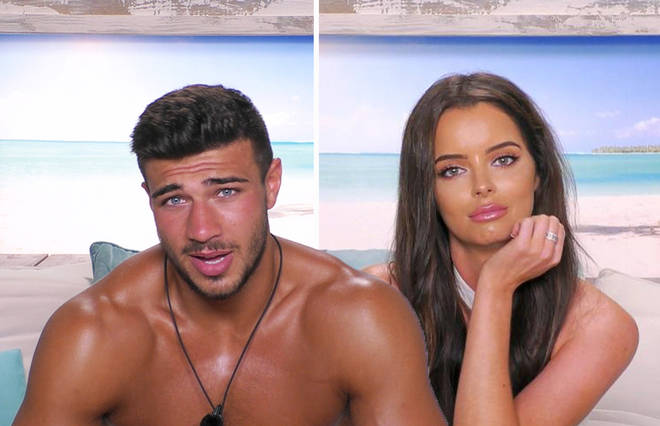It’s the middle of summer and there is nothing quite as fabulously British as Love Island. Social media forms a common ground for all to meet at and rant about the latest twist in the villa at 9pm every day.
ITV’s reality romance opened to 3.3 million Brits this year, with Britain being even more interested in the reality romances than they were last year. But with millions of us watching growing relationships on TV every night, it’s hard to ignore some of the red flags present within the show. Working on placement at a domestic violence and abuse social enterprise (IRISi), I’ve read up on the escalation tactics of perpetrators in relationships, and whilst this isn’t attack on the men or women of Love Island, this blog post aims to help us look inwardly on how we behave with our partners, and what affect this can have on them.
Whilst most of the examples given in this may have men as the perpetrators (statistics show that in 4 out of 5 Domestic Violence and Abuse incidents the offender is male), it’s not an attack on anyone, but rather a chance for men, women and gender non-conforming people to take a closer look at some of the behaviours exhibited in their relationships.
Whilst it may just be a bit of a reality TV, the people are real and the conversations are (somewhat) real, and therefore the impact they have on those contestants is real. (A disclaimer: We don’t see 24 hours a day in the villa – what we know is based on what has been shown to the public).

In all honesty I absolutely adored Micheal, the firefighter from Liverpool. A fave from the beginning, he had a cool and calm aura about him, and appeared to give the other lads a finger wagging when they needed it. But, in recent episodes, he has given us a textbook lesson in gaslighting. It’s not the first time Love Island contestants have come under fire for gaslighting, and some of the behaviors last year’s Adam Collard exhibited towards Rosie Williams were textbook signs of gaslighting and emotional abuse.
Gaslighting has become a word frequently used in recent times. Derived from the 1944 film (based on an earlier play) called Gaslight, Gaslighting occurs when the perpetrator employs a form of psychological abuse whereby the victim begins to doubt his or her sanity. The victim is told or convinced that they have said or done things that they have not.
Watching Love Island, it’s hard to ignore the clear manipulation tactics exhibited by some of the contestants: Michael deciding not to take responsibility for his actions as an adult and blaming someone else for his behaviour, having the victim think that they have done something to deserve this behaviour even when they haven’t. Instead of accepting responsibility and blame he proceeded to repeatedly call Amber ‘childish’ and ‘pathetic’, going as far as to tell her on national TV not to raise her voice at him when she hadn’t. This is clear gaslighting – trivialising the feelings of the victim and switching blame onto them.

In recent years, a lot of effort has been made by broadcasting companies like the BBC to raise awareness of consent, what it means and what it doesn’t mean. One of the signs of an unhealthy relationship is forcing unwanted sexual advances on to your partner. This wasn’t quite exhibited on Love Island but the disregard for boundaries was apparent. This was highlighted by the 700 complaints made to Ofcom about Maura consistently trying to kiss Tommy after he had repeatedly made it clear that was not something he wanted to do. Whilst it may see like a bit dramatic, respecting our partner’s boundaries is the bare minimum. No means no, and incessant pursuits are not a sign of interest but actually an early warning sign of possible later abuse.
Early on in the season, the public rallied to complain about the controlling language and behavior of former contestant Joe Garratt. Joe, who had been coupled up with Lucie, made it clear that he found it ‘strange’ how much time Lucie spent with some of the other male contestants, though she insisted the friendships were purely platonic. His manner was picked up as possessive and controlling by 302 and members of the public who complained to Ofcom. Joe complained to Lucie that he would rather she ‘get close with the girls’, despite her stating that she just felt more comfortable around her male friends. Whilst it seems harmless enough, coercive control became a criminal offence in the UK in 2015. A red flag in relationships is when the perpetrator seeks to exert control over their victim in a range of ways including telling their partner who they can and cannot talk to. The behavior that Joe is displaying here is an example of coercive control, unintentional or not.
The show offers a learning opportunity for us as a public to analyze unhealthy behaviors and think about how we treat our partners in relationships. Love Island is a great and often humorous watch, but if you or anyone you know feels like you’ve been subjected to any of the warning signs of domestic abuse or violence, reach out; do not suffer in silence. A list of agencies is available below.
To find out more about what we do and how you might be able to get IRIS in your area, please visit our website www.irisi.org or email info@irisi.org.
Follow us on social media! We are on Facebook, Instagram and Twitter
- 24 hour National Domestic Violence Freephone Hotline
0808 2000 247 - Womens Aid
0808 2000 247 - Mens Advice Line
0808 8010 327 - Respect
0808 8024 040







